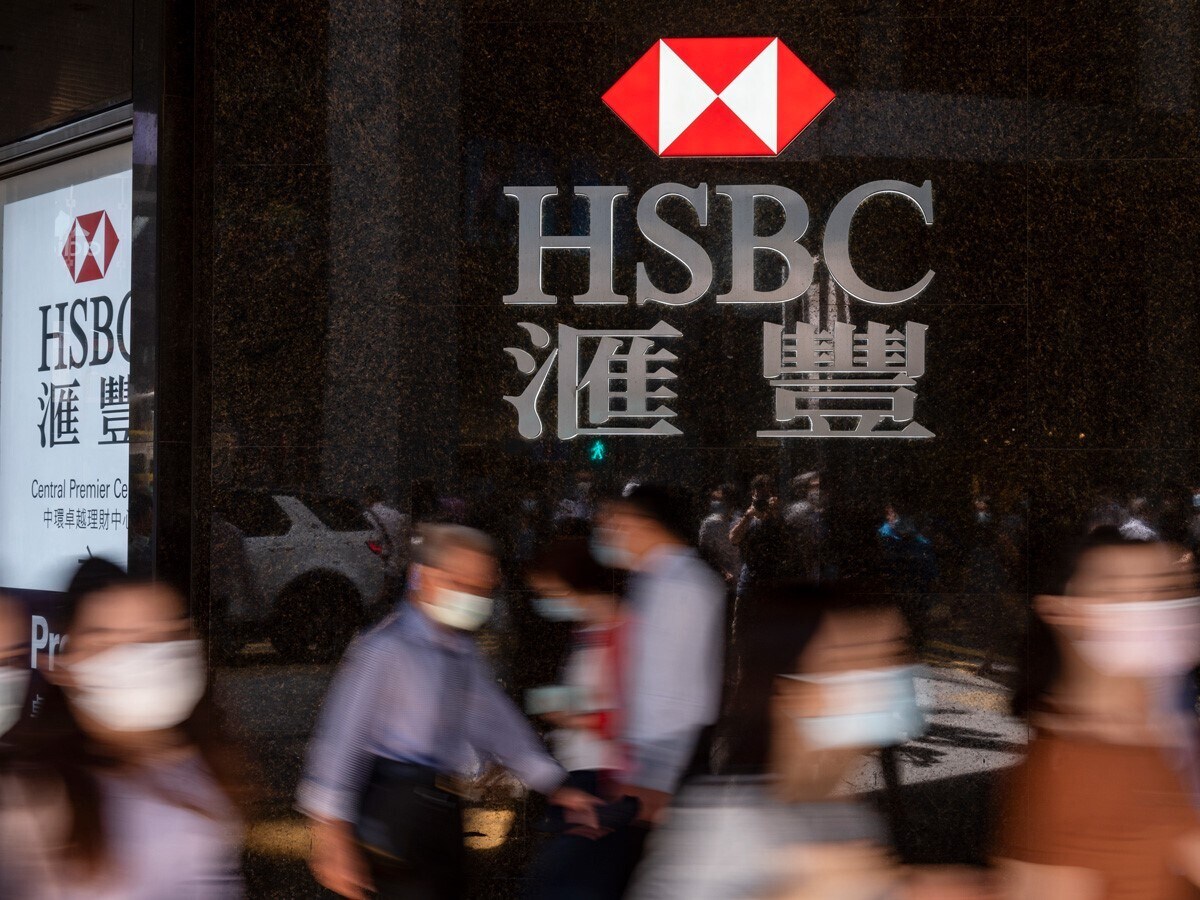HSBC’s [HSBC.L] share price climbed after a report suggested that shareholder value could be unlocked by breaking up its Asian operations.
Splitting up HSBC Holdings’s Asian unit bank could deliver $26.5m, or one-fifth of its current market value, according to a report by In Toto Consulting. Other scenarios outlined included spinning off either HSBC’s Asian business or retail business through a partial public offering.
The In Toto Consulting Group report was commissioned by Ping An Insurance, HSBC’s largest shareholder — and one of its most vocal.
The question is whether such a move could deliver for investors. HSBC’s share price has fallen 13.4% year-to-date as of Friday 17 June, though this is broadly in line with UK banks Lloyds [LLOY.L] and Barclays [BARC.L], which are down 11.6% and 16.6%, respectively, over the same period.
Would a breakup help HSBC’s share price?
The crux of the argument is that the world’s local bank shouldn’t be a global one.
Thanks to HSBC’s pivot to Asia strategy, the bank now makes two-thirds of its profits in the region. In 2021, HSBC made $12.2bn profit before tax in Asia, well ahead of $3.8bn in Europe and $1.4bn in North America. The bank also made $1.4bn in the Middle East and North Africa. Revenues in Asia were $25.8bn, ahead of $20.1bn made in Europe.
Asheefa Sarangi, managing director and founder of In Toto, said that corporate actions like the ones discussed in the report would leave stakeholders “no worse off than they are today”. Sarangi added that while spinoffs can be expensive and complicated, they can accelerate growth for both the unit being spun out and the remaining business.
As it stands, analysts seem to think there is upside in HSBC’s share price. The 17 analysts offering price targets on the Financial Times have a median target of 588.1p, suggesting a 15.6% upside on Friday’s close.
Ping An turns the tables on HSBC
The relationship between HSBC and Ping An could be described as ironic. Two decades ago, HSBC paid $600m for a 10% in the ailing insurer. That bet netted the bank $2.6bn in profit when it sold the stake in 2012.
Since then, Ping An has gone on to become China’s most valuable publicly listed insurer, with a market capitalisation to rival HSBC. Having built its stake in the bank since 2017 when HSBC stock was trading cheap, the insurer is now the largest shareholder in the bank.
Ping An reckon that HSBC’s unwieldy structure and broad reach have dragged down the share price. The insurer has become increasingly spoken out on the topic. At the start of June, it had planned a broadside at the bank’s AGM, only to be scuppered after it failed to lodge paperwork in time. It had planned to make several protest votes, including one against the reappointment of CFO Ewen Stevenson as a director.
Will a breakup actually happen?
An even greater focus on Asia, and in particular Hong Kong and mainland China, could accelerate HSBC’s restructuring of its businesses outside of the region and the jettisoning of underperforming businesses. It would also help HSBC avoid walking a geopolitical tightrope between the US and China.
Yet, despite Ping An agitating for change, that doesn’t mean it will happen. And there are plenty of reasons why it might not.
Executives at HSBC are reportedly against the idea of breaking up the bank, with Bloomberg claiming that the bank has engaged in an internal review on how to rebut Ping An’s case. To date, no other investors have publicly supported the proposals.
In May, a report in the Financial Times said that the biggest blocker of the deal would be HSBC’s dollar clearing business. The bank is one of the top five clearers for cross-border transactions and the Federal Reserve might take issue with a large chunk of global US dollars being cleared by an entity domiciled in Hong Kong. The loss of this business would be a blow for HSBC.
For now, it seems that investors might want to adopt a wait and see approach — at least until another large shareholder breaks cover and backs Ping An or dismisses the idea.
Continue reading for FREE
- Includes free newsletter updates, unsubscribe anytime. Privacy policy





